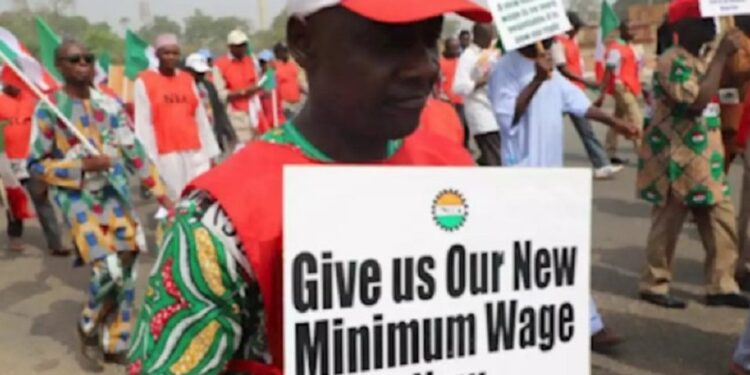The Nigeria Labour Congress (NLC) and Trade Union Congress (TUC) have announced an indefinite nationwide strike on Monday, June 3, 2024. This decision follows the tripartite committee’s failure to agree on a new minimum wage for workers.
Background and Reasons for the Strike
The organized labour leaders expressed frustration over the federal government’s inaction in negotiating a new minimum wage. They had previously demanded that all negotiations be concluded by the end of May, a deadline that has now passed without resolution.
Additionally, the unions are protesting against recent hikes in electricity tariffs. They argue that these increases place an undue financial burden on workers and consumers nationwide.
Statement from the Unions
In a statement issued by Usifo, a spokesperson for the unions, the NLC and TUC outlined their grievances and reasons for the strike:
“In light of this persistent inaction, we, the Nigeria Labour Congress (NLC) and the Trade Union Congress (TUC), hereby issue a notice of commencement of an indefinite nationwide strike to the Federal Government.
“We reiterate that since the National Minimum Wage negotiation exercise has not been concluded and the agreed wage passed into law; the hike in electricity tariff has not been reversed, and the categorization of consumers into Bands has not stopped as demanded; Nigerian workers are compelled by these failures to embark on an indefinite nationwide industrial action beginning on Monday, the 3rd of June, 2024 to press home our demands.”
Previous Negotiations and Offers
Organized labour had previously withdrawn from negotiations and rejected two offers from the Federal Government, the latest being N60,000. The failure to reach an acceptable agreement has increased tensions and led to the decision to proceed with the strike.
Implications
The strike is expected to have significant implications across various sectors, potentially disrupting services nationwide. The call to action reflects the unions’ determination to secure better working conditions and fair wages for Nigerian workers.











